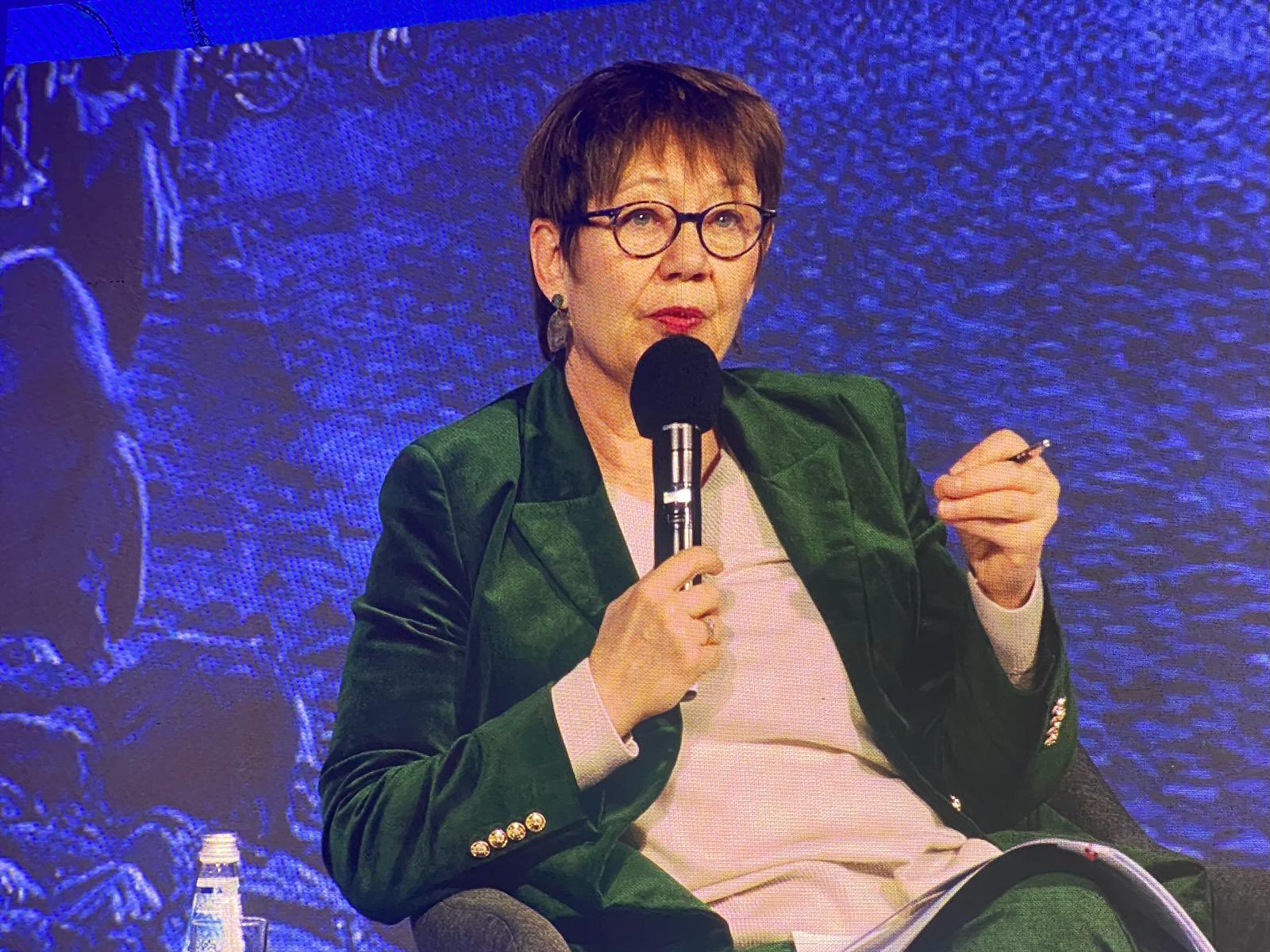BAKU, Azerbaijan, November 14. The new collective quantitative target is a key expected outcome of COP29, the President of the European Bank for Reconstruction and Development (EBRD), Odile Renaud-Basso said during a roundtable discussion on “Driving Transformative Climate Action: Shifting the Focus from Financial Inputs to Impact and MDBs' Catalytic Effect,” Trend reports.
“International Financial Institutions (IFIs) provide maximum support to the countries where they operate through financing, technical assistance, grant mobilization, and concessional financing from other sources. In this context, I would like to note that we are actively working to identify key indicators to measure and maximize our impact. As part of this work, we are publishing our overall approach to measuring climate outcomes, which includes a detailed set of country- and project-level indicators. Looking ahead, we aim to use our experience to increase climate investment, strengthen sustainable and tangible results, and create and implement project- and country-level platforms that drive transformational change, improve workforce skills, and support vulnerable communities,” she said.
According to Odile Renaud-Basso, the bank is also expanding innovative financial instruments and improving policy approaches to attract more capital.
“Ladies and gentlemen, we are facing ambitious climate finance targets. A key expected outcome is the new collective quantitative target, the NCQG. We encourage all parties to reach an ambitious and strong agreement on the NCQG. This goal is critical for IFIs to deliver more climate finance and make it more effective, mobilizing private capital and multiplying the impact of public initiatives. Let's work even closer to make this goal a reality,” Renaud-Basso emphasized.
Stay up-to-date with more news on Trend News Agency's WhatsApp channel







